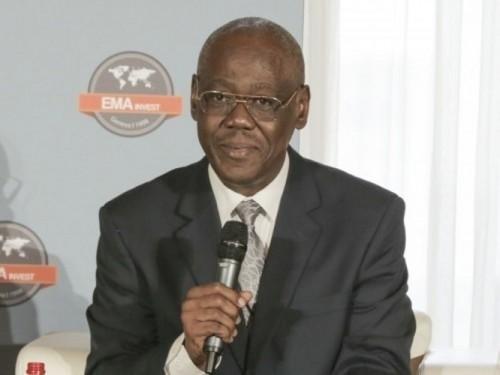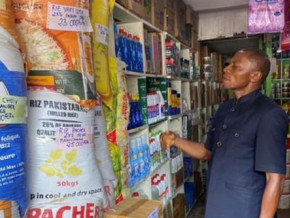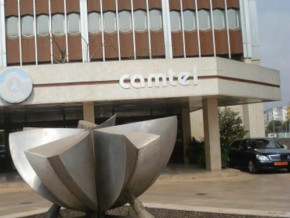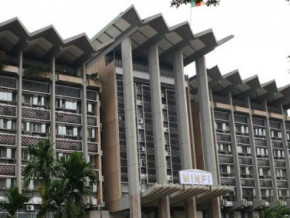
Cameroon seeks private investor for the 60,000 tonnes capacity Batouri sugar complex

(Business in Cameroon) - Following a press release battle between Cameroon’s Industry Minister Emmanuel Bondé (photo) and heads of the Indo-Cameroonian company, Justin Sugar Mills, which was leading a design project for the Batouri sugar complex in East Cameroon, the break-up seems final between the two parties.
The end of the partnership came in the form of a call for expressions of interest released on November 20, 2014 by the Minister of Industry for the “selection of a private investor to create and run the agro-industrial sugar complex in the Bertoua-Batouri mid-zone in the East region” of Cameroon. Interested investors have 10 weeks, counting from November 20, 2014, to submit their bids.
According to the government call for tenders, the Batouri sugar project consists of developing 32,000 hectares for sugar cane production. This commodity will be processed thanks to a factory to be built on site in order to correct the deficit in domestic production which varies between 60,000 and 90,000 tonnes and take advantage of the opportunities available on the sub-regional market.
The call for expressions of interest just launched by the Cameroonian government was announced by the Industry Minister in a release dated June 26, 2014 in which Emmanuel Bondé revealed the termination of the agreement protocol established on April 13, 2012 with Justin Sugar Mills, for the implementation of a sugar complex in Batouri which is located in the East region of Cameroon.
Emmanuel Bondé announced that the government’s decision follows “dysfunction (raised by the international auditing firm, Ernst & Young) in the application of the said agreement protocol, as well as in the carrying out of the project.” The government official had also specified that the site designated for the project was “immediately” reclaimed by the government, with Justin Sugar Mills being barred from accessing it.
Tug of war
On August 6, 2014, Justin Sugar Mills brushed aside the Industry Minister’s release by way of its Director of Finance and Investments, J. C. Geut. “Justin Sugar Mills Cameroon SA was never informed about any such decision by the State of Cameroon to stop such a major, socially oriented, developmental instrument in the East region and the hopes of the young people of a whole nation. Justin Sugar Mills finds that opinions expressed in the media, other than those of the company or the State, are being used to manipulate, discourage or sabotage the community development and anti-poverty project. A personal interest lobby has been trying for years to do this, without success,” wrote J. C. Geut.
In a defiant stance, to the extent that Mr Geut assured that throughout a meeting held on the same day when the Industry Minister announced the termination of the agreement with Justin Sugar Mills, “the Prime Minister expressed the need for competition in Cameroon’s sugar industry and affirmed, as usual, the government’s total support for our project, in accordance with the agreement protocol signed on April 13, 2012, which grants exclusive rights to Justin Sugar Mills Cameroon SA, to build the sugar complex in the Bertoua-Batouri, to guarantee 17,500 jobs to Cameroonians.” These remarks weakened the call for expressions of interest launched by the Cameroonian government on November 20.
Competition on the horizon for Sosucam
Worth an investment of 60 billion FCFA, the Batouri sugar complex was to be operational from January 2014, but allegedly had a variety of difficulties which continue to compromise the project’s execution. The project is to give birth to real competition from sugar production in Cameroon.
Its local subsidiary, Sosucam, is the only company to produce sugar and its base ingredient, sugar cane. Because of this, it has contracts to supply sugar (in powdered form) to local agglomerates (companies that convert powdered sugar into squares) who, unfortunately, complain generally about not being able to buy from this provider and often being obliged to import and this increases production costs.
Like Sosucam, Justin Sugar Mills, which is already present in Nigeria, Tanzania and the Democratic Republic of Congo, is planning to establish sugar cane plantations on 15,000 hectares out of a total of 155,000 hectares belonging to the company on sites in Tikondi and Bodongoué, in the Batouri district. With its initial capacity to produce 60,000 tonnes per annum, the Batouri sugar complex plans to also produce energy for its operation and rural electrification using sugar cane waste.
Mags frontpage
- Most read 7 days
- shared 1 month
- read 1 month






























